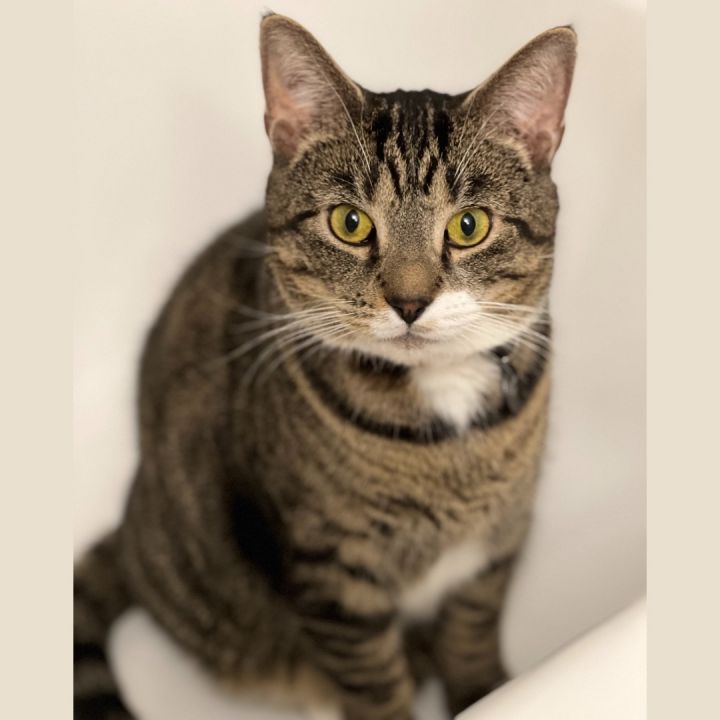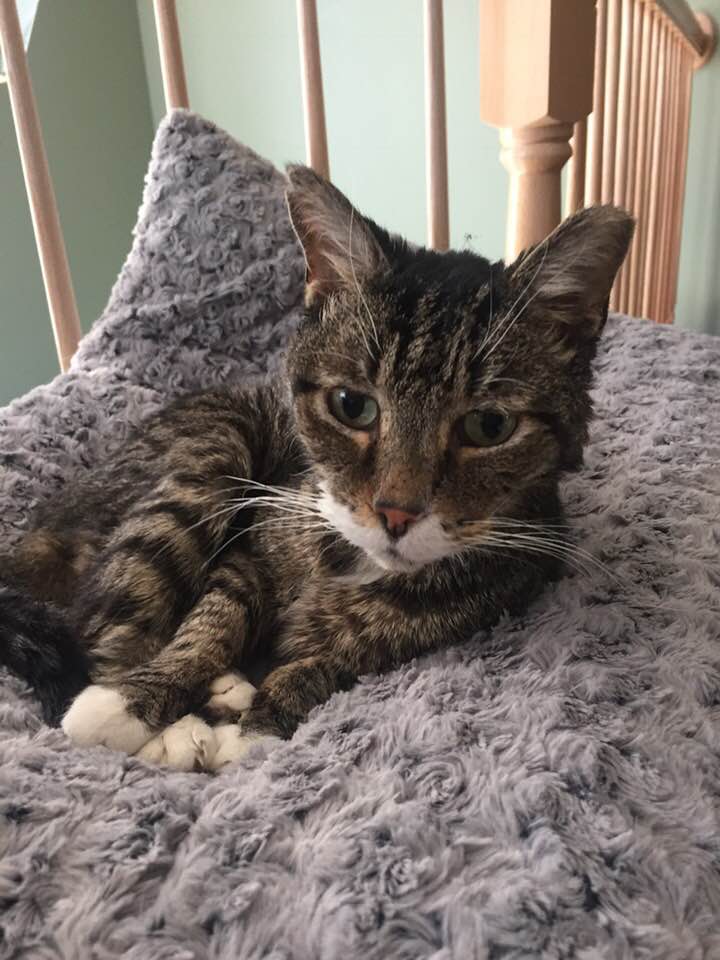Dispelling the Myths of FIV

By Kathleen Silver
When adopting animals with special needs, our hearts go out to those with obvious physical issues. But, there are also conditions we cannot see, and one of those is Feline Immunodeficiency Virus (FIV). Similar to HIV in humans, FIV can weaken a cat’s immune system making them more vulnerable to other infections.
In North America, 3-5% of cats test positive for FIV. And, like humans, a stigma carries over to FIV+ cats based on misinformation. So, allow us to take a few minutes of your time to bust some of the common myths about FIV and share a couple of positive stories about these special cats.
MYTH #1 – FIV is a death sentence.
Studies in both 2010 and 2022 note that cats with FIV live an average lifespan that is about equal to any indoor cat WITHOUT FIV. Moreover, they can live their entire lives without ever showing symptoms of FIV.
As with any animal, proper care is essential. Cats with FIV should exercise, be fed a proper diet, and visit the veterinarian every six months to stay on top of possible symptoms. FIV+ cats must always be kept indoors to protect other cats and shield FIV+ cats from infectious diseases they might pick up outside.
Some vet offices recommend euthanasia for an FIV+ cat even if the cat is otherwise healthy. However, this is not in accordance with the American Association of Feline Practitioners’ guidelines. If this is your vet’s recommendation, it may make sense to get a second opinion.
MYTH #2 – FIV+ Cats can’t live with other animals.
The primary mode of transmission for FIV is through bite wounds from an infected cat. Households where all cats are fixed, remain indoors, and live peacefully pose little risk of FIV transmission.
Case in point: After doing her research, HSLC volunteer, Eryn M., adopted Sampson — a happy, talkative kitty– into a home with three other cats. “Sammy” loves food, playing with toys and getting attention just like any other kitty. He’s asymptomatic and has been his entire life. Thanks to a proper introduction and vigilant care, no other animal in Eryn’s household was infected with FIV.
It should be noted that FIV can not be transmitted to humans or other animals besides cats.
MYTH #3 – FIV cats have a lower quality of life.
This could not be further from the truth. FIV is an incredibly slow virus – it can take years before it has an impact, if any at all. With a good diet, safe and caring environment, regular vet checks and an indoor-only lifestyle, an FIV cat can live a normal life.

Case in point, Anne S., president of the HSLC board, found a senior “kitizen” who was FIV+ on her street. Likely dumped, Mr. F.C. was in bad shape. He was overweight (“FC” originally stood for “Fat Cat”), covered with mats and had a laceration on his neck. So, when Anne and her husband took Mr. F.C. in, they didn’t expect him to survive much longer. But this tough kitty defied expectations and lived another 4 years before being diagnosed with cancer. Anne refers to Mr. F.C. as her spirit animal and is so thankful for the time they had together.
To learn more about FIV, click here.
